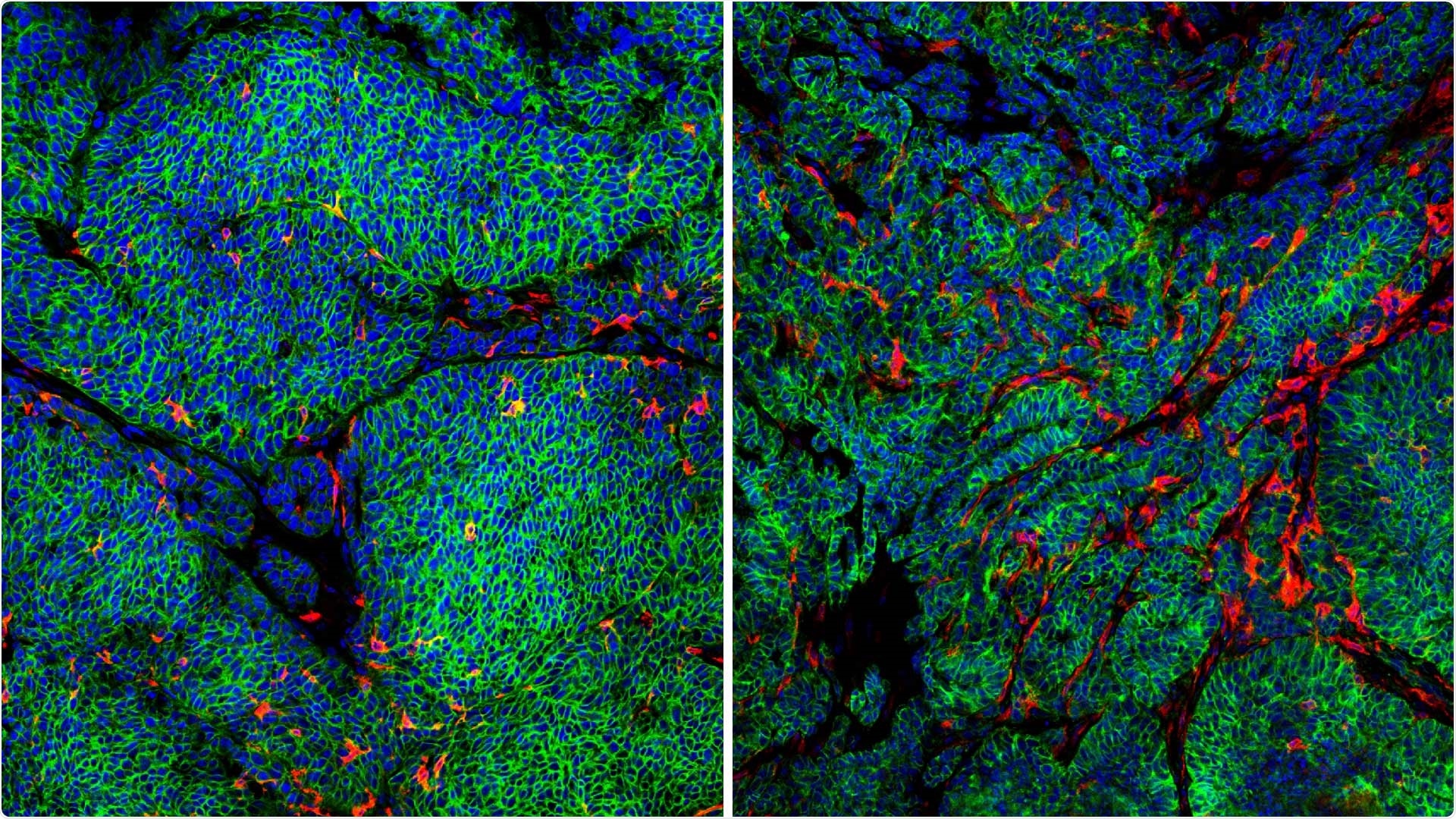Mikala Egeblad, an Associate Professor from Cold Spring Harbor Laboratory (CSHL), and her collaborators have explained a new method that clearly shows how a crucial player in the body’s immune system is destroyed by breast cancer cells.

Photomicrographs of mouse tumors expressing a factor that suppresses a local immune response (left) and one that permits that immune response (right). Researchers discovered that cancer cells expressing the protein CCR2 suppress the secretion of factors that cause dendritic cells to infiltrate and mature in tumors. The image on the left shows where the cancer cells (colored green) have the CCR2 protein, and this tumor has few dendritic cells (colored red). The image on the right shows a tumor where the cancer cells do not have the CCR2 protein, and this tumor is infiltrated by many more dendritic cells. Cell nuclei are stained blue in both images. Image Credit: Xue-Yan He, Egeblad lab, Cold Spring Harbor Laboratory.
That major player stimulates the killer T-cells to offer local immune surveillance; however, if it is unable to mature and perform its task, breast cancer cells will not be detected by the immune system, leading to unhindered and unnoticed growth.
Cross-presenting dendritic cells are the main players in question. Such cells are significant because they trigger and coordinate local immune reactions by displaying parts of cancer cells to the supposed killer T-cells. Subsequently, the killer T-cells identify and kill the tumor cells.
The researchers identified that breast cancer cells make use of a protein located on their surface, a supposed cell surface receptor known as CCR2, in a spontaneous manner.
This receptor disrupts the maturation of cross-presenting dendritic cells. But this was completely unexpected because the CCR2 receptor plays an entirely different role in the immune cells, which make use of the receptor to guide themselves to the inflammation areas.
But when the CCR2 receptors emerge on the surface of the cancer cells, they inhibit the secretion of a signal that is required by dendritic cells for their maturation.
The scientists want to learn more accurately how the CCR2 receptors are used by cancer cells to inhibit those crucial proteins; however, the findings of this latest study have already proved useful because it is now possible to target the CCR2 receptor itself.
Back in 2012, the Egeblad laboratory revealed that blocking the CCR2 receptor on immune cells can enhance the potential of drugs to enter tumors.
At present, CCR2-blocking drugs are being validated in the clinic as a means for treating cancer. These new findings imply that inhibiting the activity of the CCR2 receptors can also help the body’s own immune response to combat cancer.
This delves into something that no one was really considering when blocking CCR2. It opens up new ideas to build even better therapies or use existing drugs in different ways.”
Miriam Fein, Postdoctoral Researcher, Cold Spring Harbor Laboratory
Source:
Journal reference:
Fein, M. R., et al. (2020) Cancer cell CCR2 orchestrates suppression of the adaptive immune response. Journal of Experimental Medicine. doi.org/10.1084/jem.20181551.